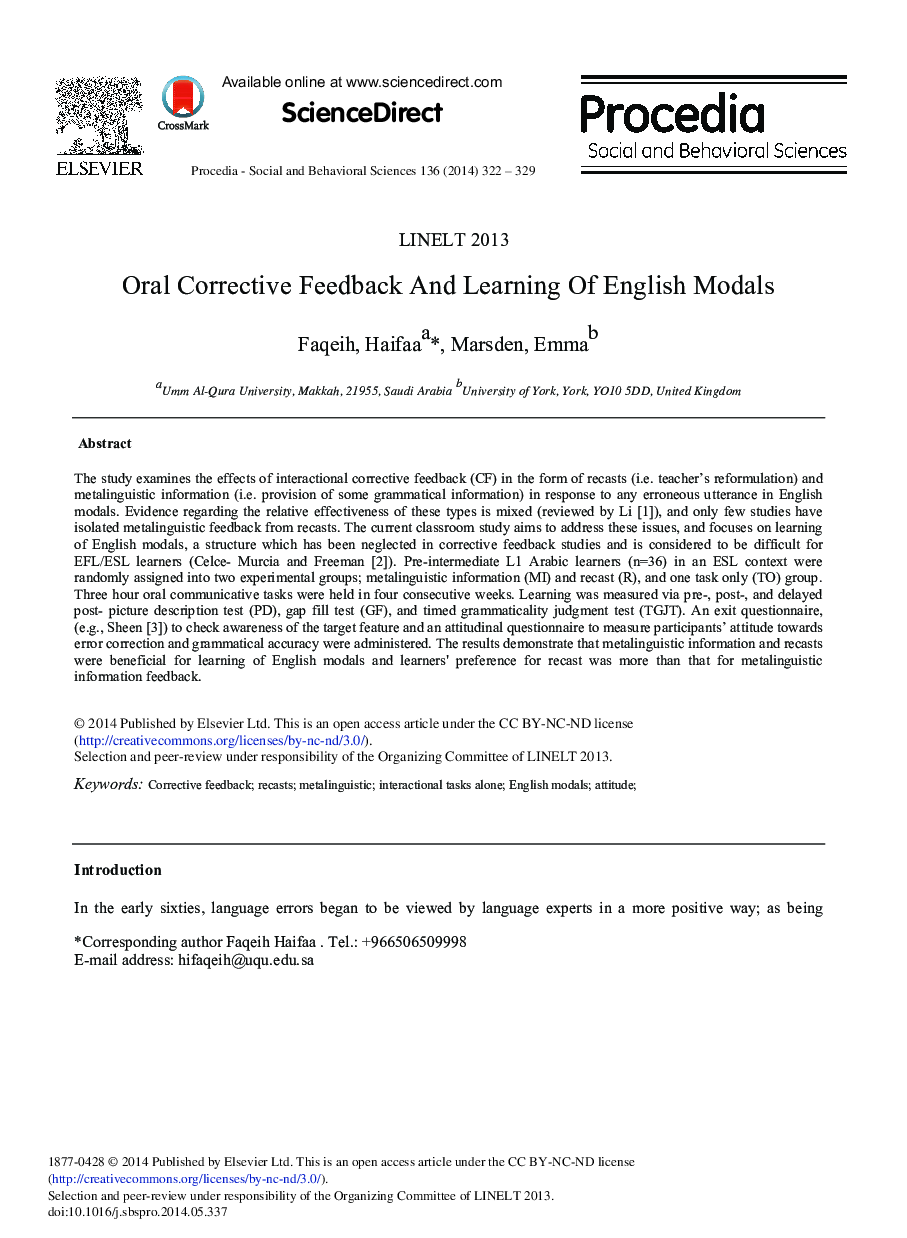| Article ID | Journal | Published Year | Pages | File Type |
|---|---|---|---|---|
| 1113569 | Procedia - Social and Behavioral Sciences | 2014 | 8 Pages |
Abstract
The study examines the effects of interactional corrective feedback (CF) in the form of recasts (i.e. teacher's reformulation) and metalinguistic information (i.e. provision of some grammatical information) in response to any erroneous utterance in English modals. Evidence regarding the relative effectiveness of these types is mixed (reviewed by Li [1]), and only few studies have isolated metalinguistic feedback from recasts. The current classroom study aims to address these issues, and focuses on learning of English modals, a structure which has been neglected in corrective feedback studies and is considered to be difficult for EFL/ESL learners (Celce- Murcia and Freeman [2]). Pre-intermediate L1 Arabic learners (n=36) in an ESL context were randomly assigned into two experimental groups; metalinguistic information (MI) and recast (R), and one task only (TO) group. Three hour oral communicative tasks were held in four consecutive weeks. Learning was measured via pre-, post-, and delayed post- picture description test (PD), gap fill test (GF), and timed grammaticality judgment test (TGJT). An exit questionnaire, (e.g., Sheen [3]) to check awareness of the target feature and an attitudinal questionnaire to measure participants' attitude towards error correction and grammatical accuracy were administered. The results demonstrate that metalinguistic information and recasts were beneficial for learning of English modals and learners' preference for recast was more than that for metalinguistic information feedback.
Related Topics
Social Sciences and Humanities
Arts and Humanities
Arts and Humanities (General)
Authors
Faqeih Haifaa, Marsden Emma,
